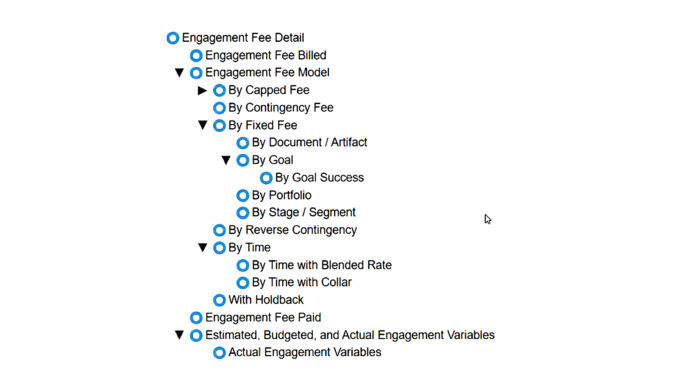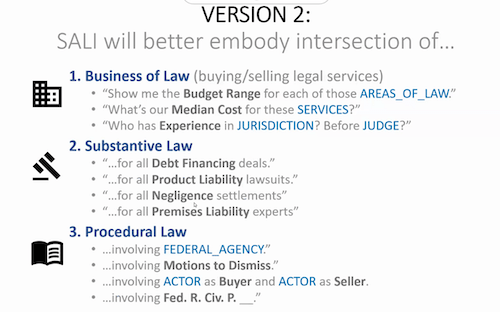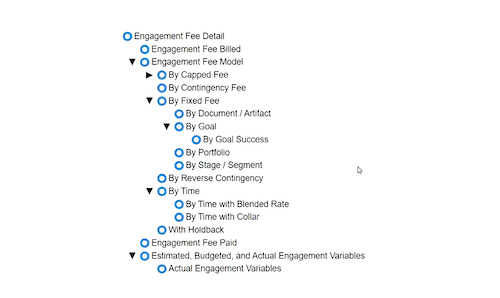
The SALI Alliance, the US-based standards setting project, has launched the second iteration of its Legal Matter Standard Specification (LMSS), which will also include ways to connect their growing legal matter taxonomy to billing definitions – an important step that could help the industry to move away from the billable hour.
One key reason why the billable hour is so prevalent still is that the legal sector finds it hard to describe the legal work that it produces. By building a detailed taxonomy of matter types and then linking this to billing types, it’s easier to identify an objective pricing model that all lawyers and clients can share, just as SALI’s broader legal matter taxonomy will also help all law firms and clients to work from ‘the same page’ when describing a work project.
Jim Hannigan, Director of Legal Project Management at Coblentz, and Damien Riehl, MD at Fastcase, and both part of the SALI Alliance, told Artificial Lawyer: ‘We are a standards organisation working to develop common definitions of legal services work; we have not collected any of the actual billing data (although our members such as Thomson Reuters, Wolters Kluwer, and Lexis certainly do). We are designing these definitions with the goal of serving use cases such as billing and engagement tools.’


When asked if SALI would like to start collecting financial data, rather than just classifying billing methodologies that will connect to their legal work taxonomy, they replied: ‘That’s something we could look to do someday, but it’s not our mission at this time.’
At present the group reckons around 10 firms or other businesses in the legal services sector are using the SALI taxonomy, ‘some entirely, some bits and pieces, and others have used it to inform their [legal matter] categories’.
The billing aspect is just one part of the V.2. iteration that includes a wide range of other planned areas and capabilities, including APIs to allow better and more uniform data sharing between vendors (such as eBilling companies), as well as graphical data maps that allow lawyers with different ways of describing the same work matter to find common ground inside the SALI taxonomy.
SALI is mainly in the US at present, but is in discussions with people in Germany and also Canada. At present they have not been able to find a team of people to work on SALI in the UK, something they are very open to. If you are in the UK and would like to get involved, please contact Artificial Lawyer and this site would be glad to connect you to the SALI team.
As to where they are now with the V.2 project, Hannigan said: ‘This new material is open for public comment, and it’s very early in the process since it’s largely been a small group that has built this so far. It will take some time to gather the feedback we need from various stakeholder types, I see this happening over the course of the next year.’
Hi, I work at an Australian law firm, Lander & Rogers, and have been following developments with SALI with interest. We are about to embark on a project to consolidate our major sources of data and I’d be interested to see if SALI is something that could we could be involved in. I’d be happy to be connected to the SALI team.
Joel